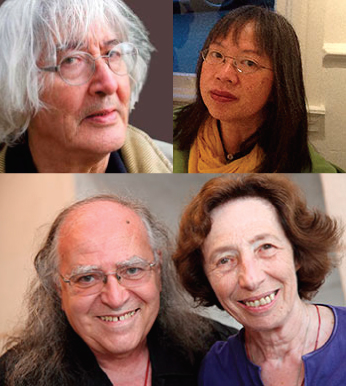“Houses and rooms are full of perfumes…
The smoke of my own breath,Echoes, ripples, buzzed whispers,
love root, silk thread, crotch and vine,
My respiration and inspiration, the beating of my heart,
the passing of blood and air through my lungs,
The sniff of green leaves and dry leaves, and of the shore
and dark-colored sea rocks, and of hay in the barn,
The sound of the belched words of my voice loosed to the
eddies of the wind,
A few light kisses, a few embraces, a reaching around of arms,
The play of shine and shade on the trees as the supple boughs wag,
The delight alone or in the rush of the streets, or
along the fields and hillsides,
The feeling of health, the full-noon trill, the song of me rising
from bed and meeting the sun.”
—Walt Whitman, Song of Myself
“I’m jazzed—how do I make a reservation?”
—Wendy Overin
The point of “publication” is to make something public:
“the song of me rising from bed and meeting the sun.”Walt Whitman—whom we see sitting in a chair in our own Poetry Hotel—is the patron saint of such activity: the moment when deep interiority finds its way into the world.Clara Hsu and I imagine our Poetry Hotel to be the place in which such a meeting occurs. Paper? Electronic? In Whitman the word “leaves” is a pun: “leaves of grass,” but also each page of a book is a “leaf.” Our “leaves” may at times be nothing but electronic impulses, yet that moment of transformation—“The sound of the belched words of my voice loosed to the eddies of the wind”—is common to all the activities that take place at the Poetry Hotel.We look for work that tells us, as Rilke (or was it Apollo?) did in a famous poem: “Du mußt dein Leben ändern” (“You must change your life”). Life-changing, transformative, interesting. “The necessity of poetry has to be stated over and over,” wrote Adrienne Rich in her introduction to Judy Grahn’s The Work of a Common Woman, published by Oakland, California’s Diana Press: “but only to those who have reason to fear its power, or those who still believe that language is ‘only words’ and that an old language is good enough for our descriptions of the world we are trying to transform.”
—Jack Foley


